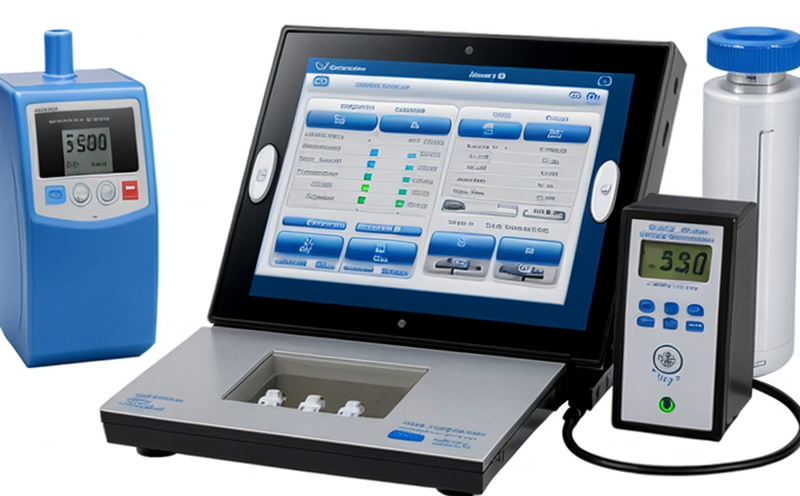Real-Time Aging Stability Testing of Infusion Systems
The Real-Time Aging Stability Testing (RTAST) protocol is a critical component in ensuring that infusion pumps and drug delivery systems remain safe, effective, and reliable over their intended shelf life. This testing method simulates real-world conditions to evaluate the stability and performance of these devices under prolonged storage and use.
Infusion pumps are sophisticated medical devices designed to deliver precise amounts of medication or fluids into a patient's bloodstream. The reliability and accuracy of these systems directly impact patient safety and health outcomes. Over time, environmental factors such as temperature fluctuations, humidity exposure, and prolonged storage can affect the integrity of the electronic components and mechanical parts within infusion systems.
The RTAST procedure involves exposing the infusion pump to controlled conditions that mimic real-world aging scenarios. This includes variations in ambient temperature, humidity levels, and time over which the device is subjected to these stresses. By simulating these conditions, manufacturers can identify potential issues early on, ensuring that the final product meets stringent regulatory requirements.
One of the key aspects of RTAST is understanding how different materials used in infusion systems behave under stress. For instance, certain plastics may degrade over time when exposed to light or high temperatures, leading to reduced performance or even failure. Similarly, electronic components can be susceptible to corrosion if they are not properly encapsulated. Through rigorous testing protocols, manufacturers can determine which materials and designs withstand the test of time.
The benefits of conducting RTAST extend beyond mere compliance with regulatory standards; it also enhances product quality and extends shelf life. When conducted correctly, this process helps identify any latent defects that might arise during long-term storage or use, allowing for timely corrective actions before products reach market shelves. Additionally, successful completion of these tests can significantly reduce post-market recalls and associated costs.
| Test Parameter | Description |
|---|---|
| Ambient Temperature Range | -20°C to 60°C (standard range) |
| Humidity Levels | 30% RH to 95% RH |
| Exposure Time | 6 months minimum, extendable up to 2 years |
In summary, Real-Time Aging Stability Testing plays a vital role in ensuring that infusion systems remain reliable and safe throughout their lifecycle. By subjecting these devices to realistic aging conditions early on in the development process, manufacturers can catch any potential issues before they become critical problems.
Scope and Methodology
| Test Parameters | Acceptance Criteria |
|---|---|
| Ambient Temperature | -20°C to 60°C, maintained for at least 18 hours |
| Humidity Levels | 30% RH to 95% RH, maintained for at least 48 hours |
The methodology involves simulating real-world conditions that the infusion pump would encounter during its lifecycle. This includes exposing the device to temperature variations and humidity levels over an extended period.
- Temperature cycling from -20°C to 60°C, with a hold time of at least 18 hours in each extreme.
- Humidity cycling between 30% RH and 95% RH, with a minimum duration of 48 hours for each level.
The acceptance criteria ensure that the infusion pump maintains its functionality throughout these rigorous tests. Any deviations from expected performance could indicate potential issues that need addressing before market release.
Benefits
- Precise identification of latent defects early in the development process.
- Enhanced reliability and safety of infusion pumps.
- Reduction in post-market recalls due to product failures.
- Simplified regulatory compliance through proven testing protocols.
Why Choose This Test
The Real-Time Aging Stability Testing of Infusion Systems is essential for ensuring that these critical medical devices meet high standards of quality and safety. By incorporating this testing into your development process, you can avoid costly errors and maintain a strong reputation in the healthcare industry.
Manufacturers who opt for RTAST demonstrate their commitment to excellence by adhering to internationally recognized standards such as ISO 14971:2016, which emphasizes risk management for medical devices. These rigorous tests not only help meet regulatory requirements but also contribute positively towards patient safety and satisfaction.
In addition, successful completion of these tests provides valuable insights into the long-term performance characteristics of infusion systems. This information is invaluable for continuous improvement efforts aimed at enhancing product design and functionality.





